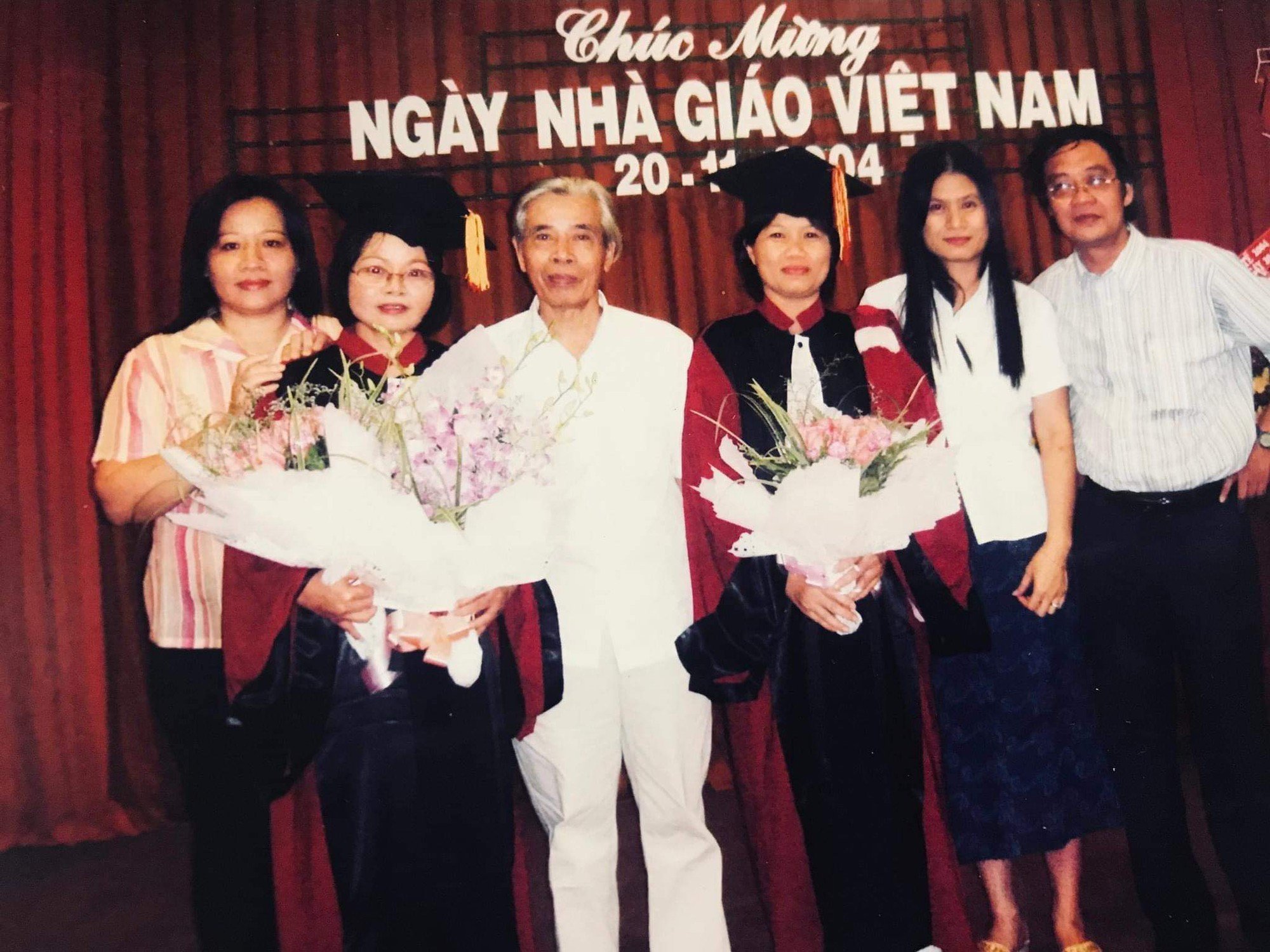
Professor Nguyen Van Hanh (3rd from left) with students
I did not witness that glorious part of his life, and he rarely told me about it, but the vibrant spirit of the Renovation period, of practical initiatives, was always present in his eyes, voice, and gestures. My teacher truly lived a life worth living, doing what he wanted to do. And many people benefited from it, including me.
Many people know about the glorious achievements of Professor Nguyen Van Hanh and many articles have written about them. I would like to briefly write down a few things about my teacher in his daily life.
Give learners independent thinking
I am always proud and honored to mention my graduate science supervisor, Mr. Nguyen Van Hanh. Hiding under the shadow of his name, I am confident. He guided me both at the master's and doctoral levels.
It is not an exaggeration to say that if my supervisor had not been him, I would have taken a long time to complete my thesis and dissertation. Although I never complained to anyone about the lonely hustle and bustle of making a living, wandering around Ho Chi Minh City to find a place to live (I had to leave my rented accommodation 8 times), he understood and sympathized with me, only gently calling to remind me.
The teacher said: "It's been so long, I don't know how far you've come. If you don't come to my house, you should let me know where you are so I can come! Of course, I know you have to work to support your children. You don't need to sit at your desk all the time writing, but never forget your concern for the topic."
From him, I learned how to separate what is "worth" and what is "not worth" paying attention to. He often smiled and said, "Oh, that's not worth it, my dear!". I gradually absorbed his philosophy of "not worth it" and felt my spirit become lighter and more poetic each day. With that spirit, I entered the scientific submission sessions with ease.
And in life, I forget very quickly what makes me sad. Many times when I come to see the teacher with problems and sadness, I leave with a smile on my face, even giggling out loud alone on the street.
Reading my writings and listening to my presentation of the problems that arose, the teacher gently reoriented me, making it concise and consistent, but not forcing me to give up my point of view, even though he might not agree with everything, as long as I could "reason". The teacher never held my hand and instructed me, but gave the student the independence to think, to explore and to analyze the phenomenon himself. When I was doing my thesis on Literary Reception, the teacher never told me that he was the first Vietnamese person to fire a gun in this field. As early as 1972, when the Konstanz School's theory of Reception Aesthetics had not been mentioned by anyone, he said: "The history of the problem is a problem that can only be understood by oneself, no one can give me advice."
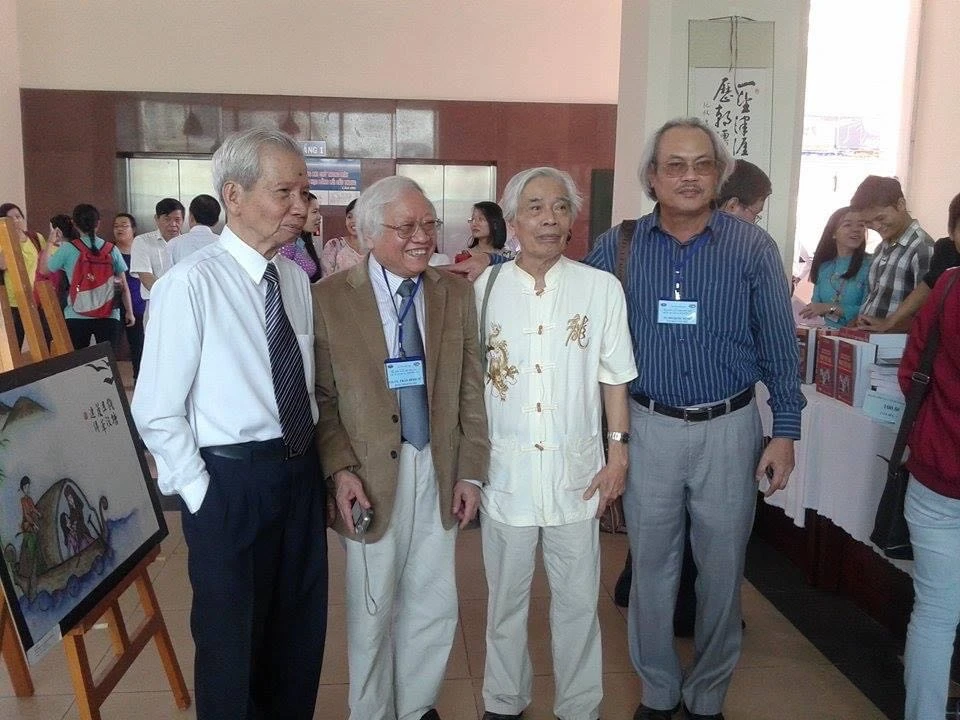
Professor Nguyen Van Hanh (second from right) with colleagues and students
Sharp in science but very kind in life
In him, there is not only scientific knowledge but also wisdom, which can only be obtained after experiencing life and contemplating it. He is very tactful about my private matters, often just asking: "How are you, are you living well, is there anything new lately?". And then, he laughs: "Sometimes there is nothing new - new is fine, my dear". He realizes that this person or that person cannot do this or that, because although kind and intelligent, "being too stubborn leads to cruel oppression of like-minded people".
Sharp in science, but extremely kind in life. He loved and enjoyed beauty, and never spoke ill of women. In particular, he respected and pitied the women around him - his wife, daughter, and daughter-in-law. More than once, and not only to me, he expressed his gratitude to his wife who shouldered the housework and took care of the children while he was still busy with social work. When he got old, he tried to make it up to her, but he still felt guilty, sad, and pitied "Mrs. Tu at the riverside".
Retired for a long time, he is still strong and healthy, walking long distances, looking around enthusiastically: "I don't know about you, but I love this city so much!". But then he wants to go home quickly, because "he misses his grandson who is learning to talk and walk". The grandfather who once roamed "alone on a horse, breaking through the siege in the middle of the desert" causing a stir in the cultural events of the decade of renovation, is now almost amazed, admiring and admiring every first word of the child learning to speak.
He was not only a teacher, but also a father. My father and he had known each other since they were young, and they respected each other all their lives. Out of habit, sometimes he called me "niece". And my father was completely at ease when he saw his daughter "following Uncle Hanh". On the rare occasions when my father came from the North, the two of them met and talked, I felt strangely warm, as if I had two fathers.
Last night my teacher passed away, to the land of white clouds, to the world of good people...
How I miss those days when I had you...
How sorry I am, from now on I will no longer be able to see you at Pham Don alley...
Professor Nguyen Van Hanh passed away at 10:30 p.m. on November 19, 2023 (October 7, Quy Mao year) in Ho Chi Minh City, at the age of 93.
The burial ceremony will take place at 2:00 p.m. on November 20, 2023; the funeral will take place at 8:00 a.m. on November 22, 2023 (October 10, Quy Mao year), at the City Funeral Home, National Highway 1A, An Lac Ward, Binh Tan District, Ho Chi Minh City; after that, the coffin will be cremated at Binh Hung Hoa Cremation Center.
Background and career
Professor Nguyen Van Hanh was born on January 1, 1931, in Dien Tho, Dien Ban, Quang Nam. Member of the Vietnam Writers Association since 1972.
He was born into a family with a Confucian tradition. He graduated from the Faculty of Philology at Lomonosov Moscow State University in Russia in 1961. He defended his doctoral thesis in philology there in 1963.
In 1963, he returned to Vietnam and worked at the Faculty of Literature, Hanoi Pedagogical University, head of the department of literary theory.
Since 1965, as head of the Department of Literary Theory, he was one of the leaders and participants in compiling the textbook Fundamentals of Literary Theory (4 volumes, published from 1965-1971). This is one of the first three literary theory works ( Literary Concepts by Dang Thai Mai, Literary Theory Principles by Nguyen Luong Ngoc) applying principles and concepts proposed by Soviet scholars to build a Vietnamese literary theory textbook, explaining practical issues in the history of our country's literature.
After the country's reunification, he became Head of the Hue University Institute, Principal of Hue University of Education 1975-1981, Deputy Minister of Education and Training 1983-1987, Deputy Head of the Central Department of Culture and Arts, Deputy Head of the Central Department of Ideology and Culture 1981-1983; 1987-1990, senior expert of the Institute of Social Sciences, now the Southern Institute of Social Sciences in Ho Chi Minh City. He was awarded the title of Associate Professor in 1980, Professor in 1984. He retired in 2003.
Main published works :
Theoretical basis of literature (4 volumes, 1965-1971, editor and co-editor); Thoughts on literature (essay, 1972); To Huu's poetry, the voice of agreement, sympathy, and comradeship (monograph, 1980, 1985); Nam Cao - a life, a life of literature (1993); Literary theory - issues and thoughts (research, co-written, 1995); Literature and culture - issues and thoughts (essay, 2002); Hundred years of Quang land poetry (poetry collection, 2005, editor and co-editor); Literary and life stories (essay, 2005); Literary criticism theory ; Current situation and trends (essay, 2009); Methodology of literary research (research, 2012).
(According to the website of the Vietnam Writers Association)
Source link


![[Photo] President Luong Cuong presides over the official welcoming ceremony for Burundian President Évariste Ndayishimiye](https://vstatic.vietnam.vn/vietnam/resource/IMAGE/2025/4/4/63ceadc486ff4138abe2e88e93c81c91)



![[Photo] Workshop "Future for the Rising Generation" continues the profound value and strong message from the article of General Secretary To Lam](https://vstatic.vietnam.vn/vietnam/resource/IMAGE/2025/4/4/ec974c5d9e8e44f2b01384038e183115)

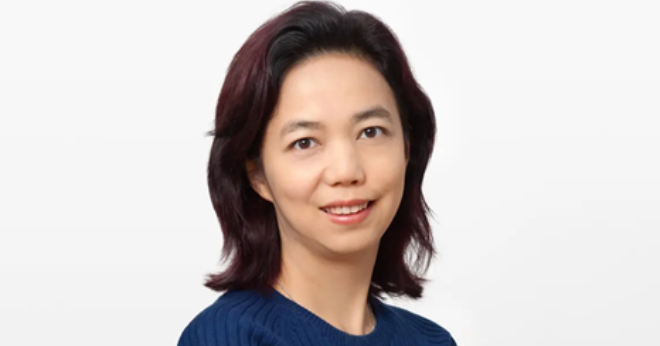

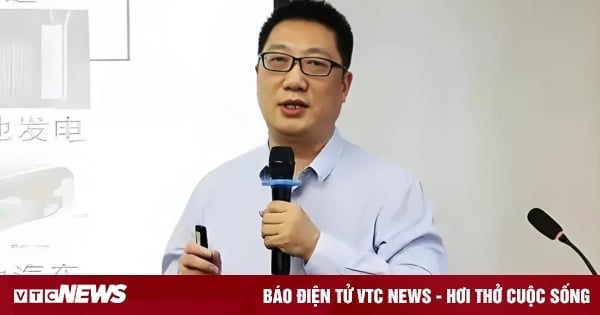


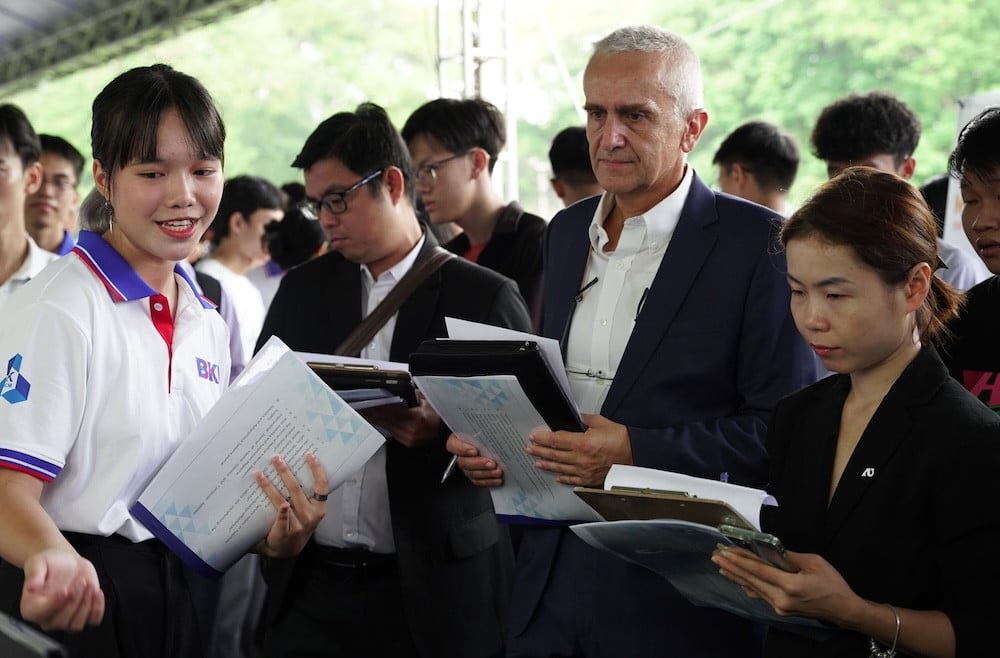

















![[Photo] Many advanced technologies gather at Analytica Vietnam 2025](https://vstatic.vietnam.vn/vietnam/resource/IMAGE/2025/4/4/0ef01117275d4d71b2e2a45c215ac2f8)
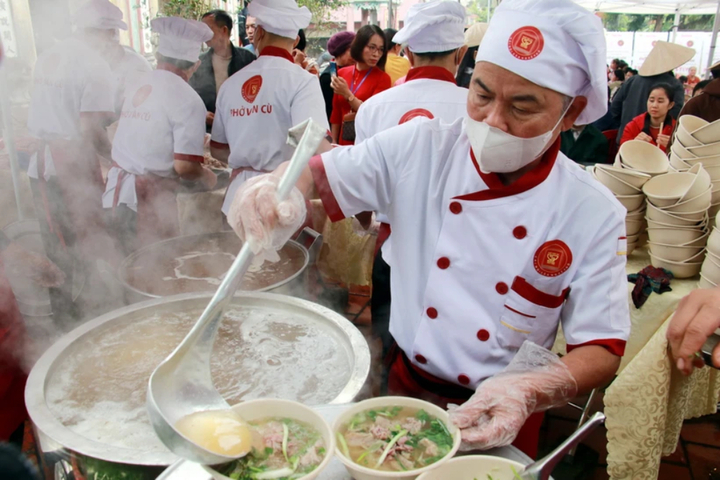

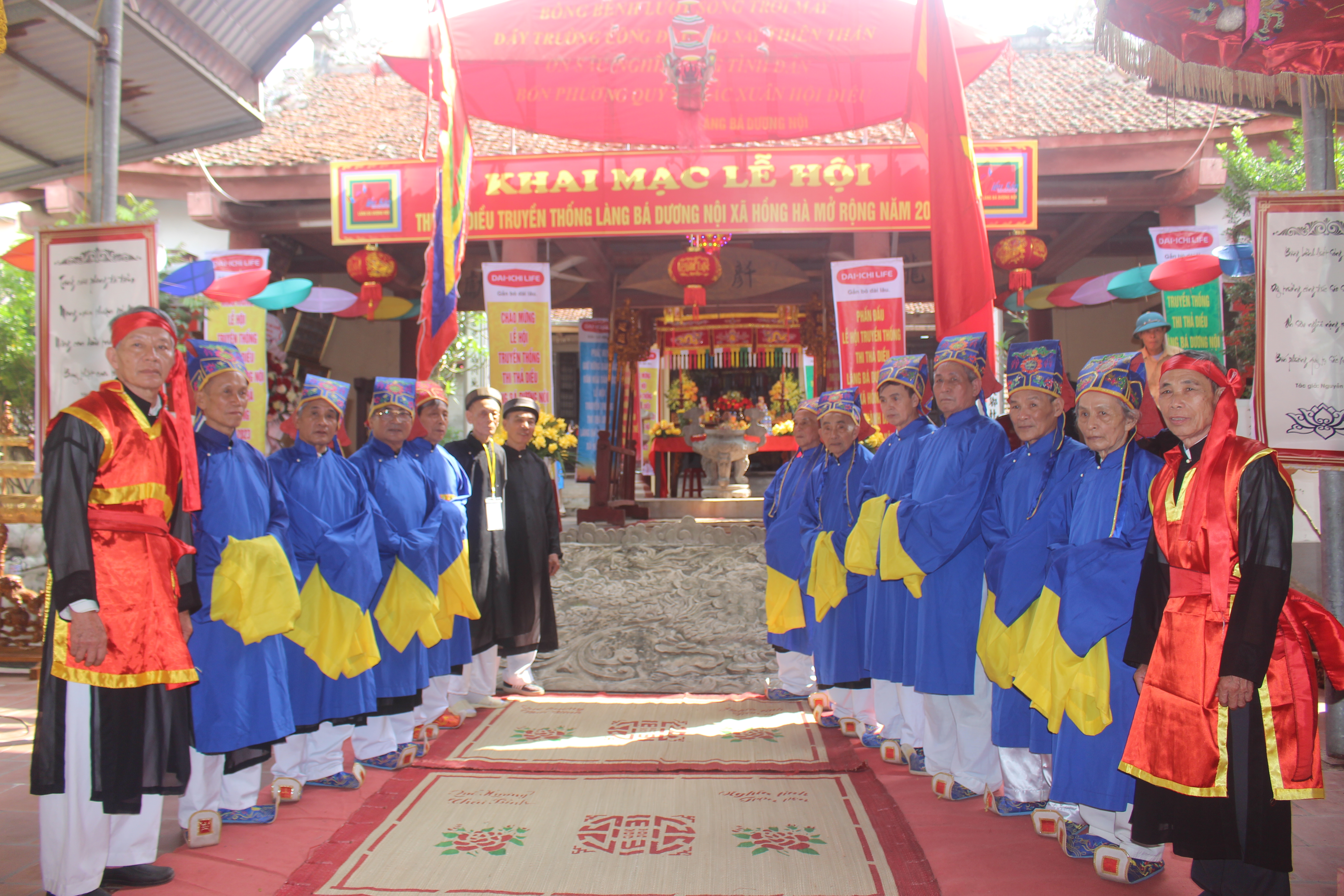

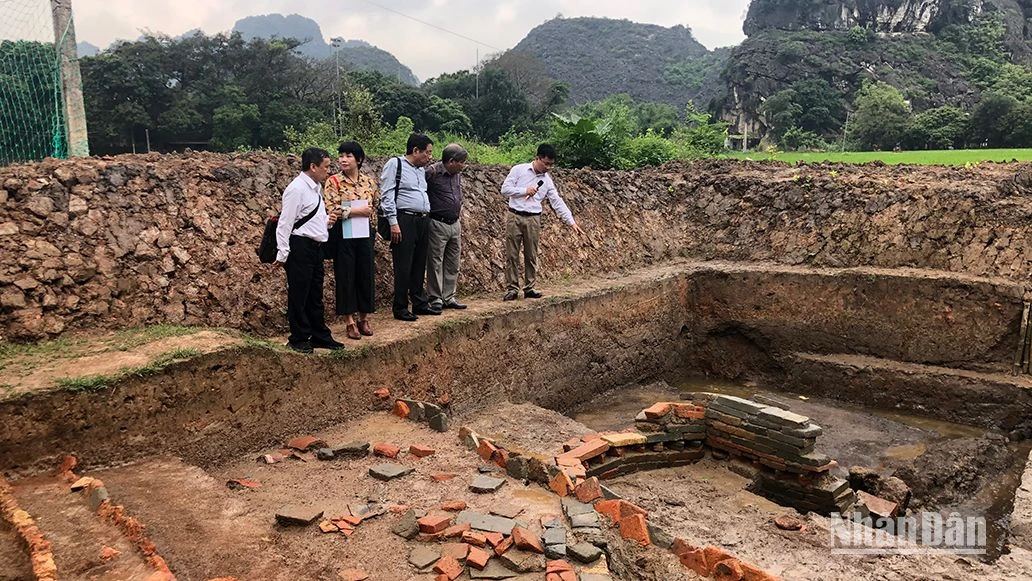



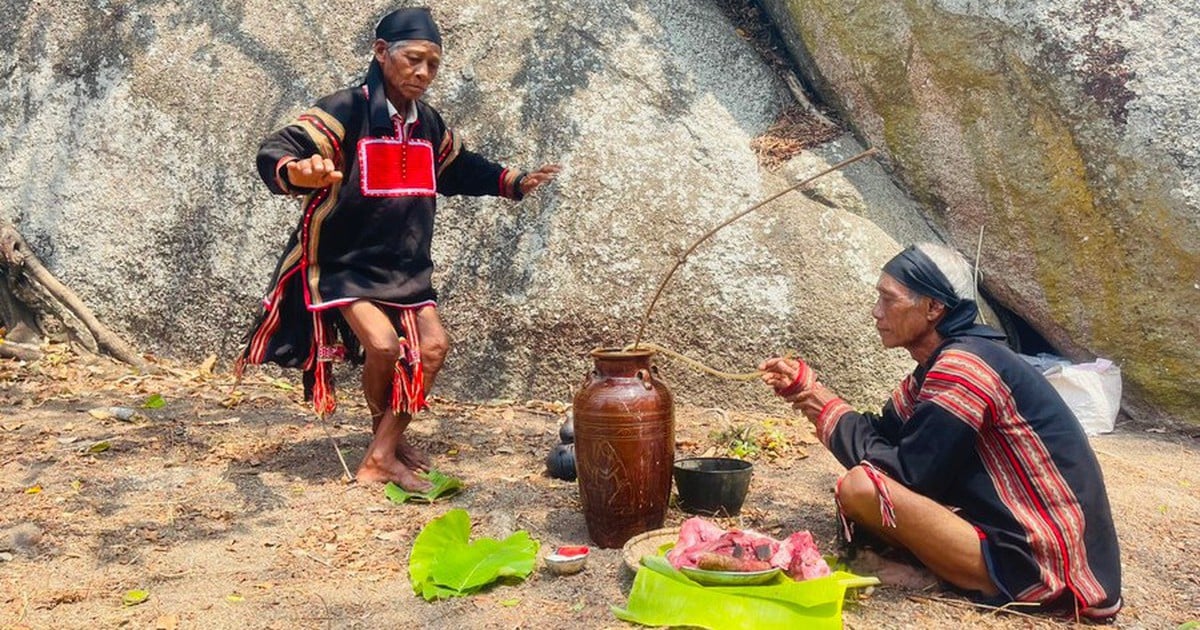


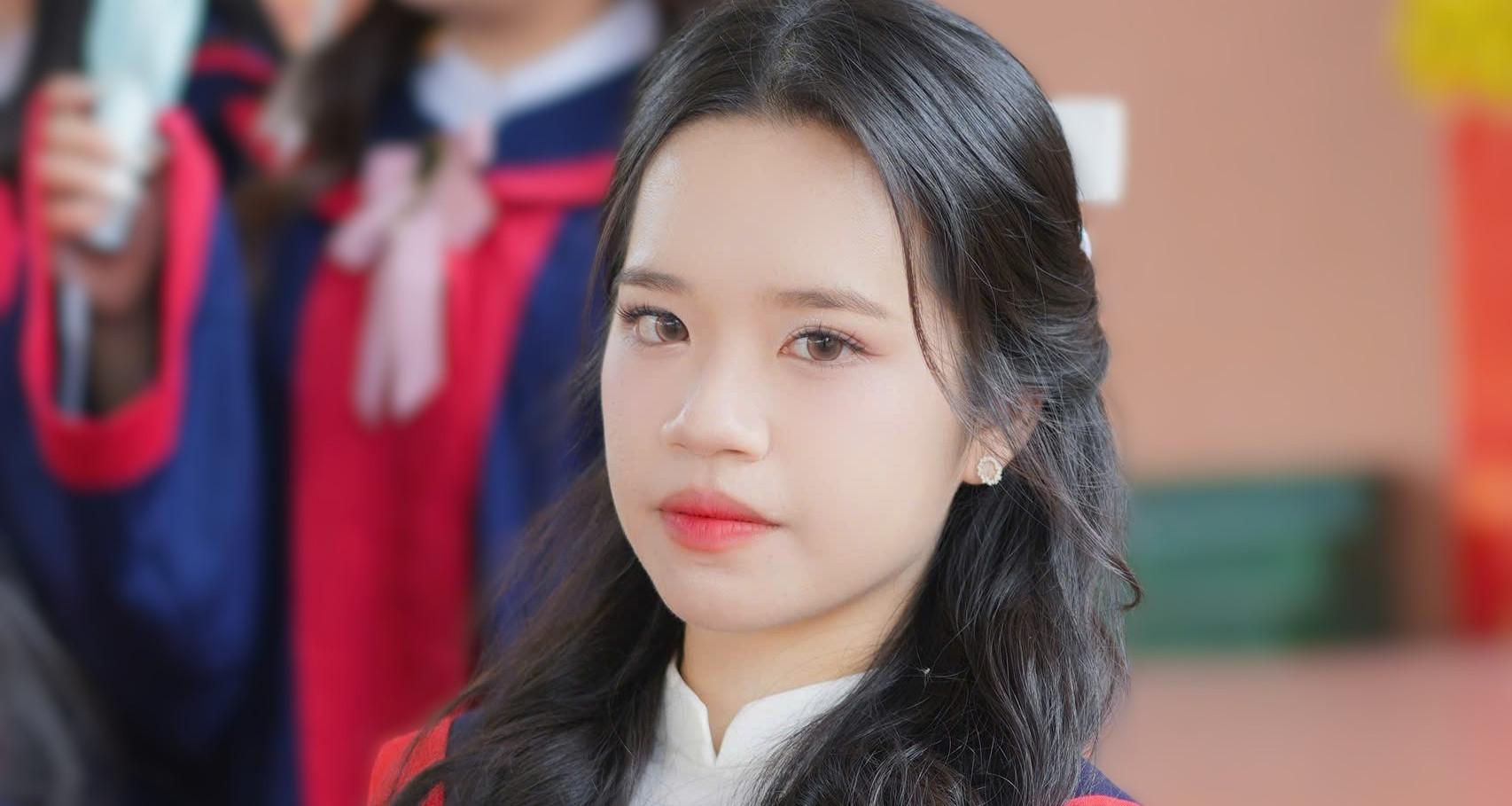


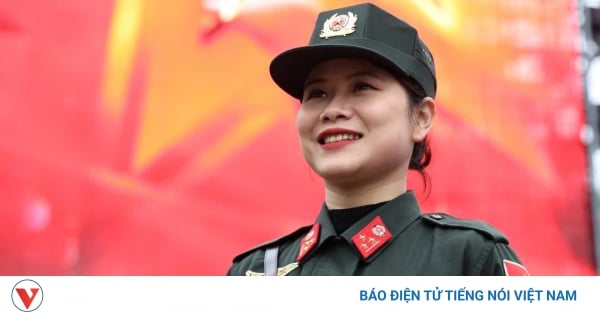




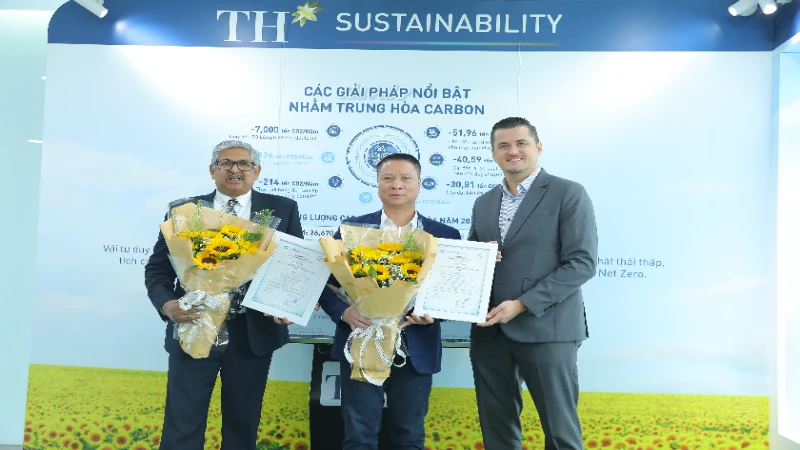
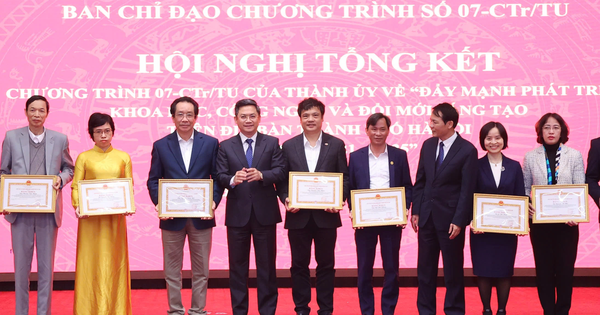



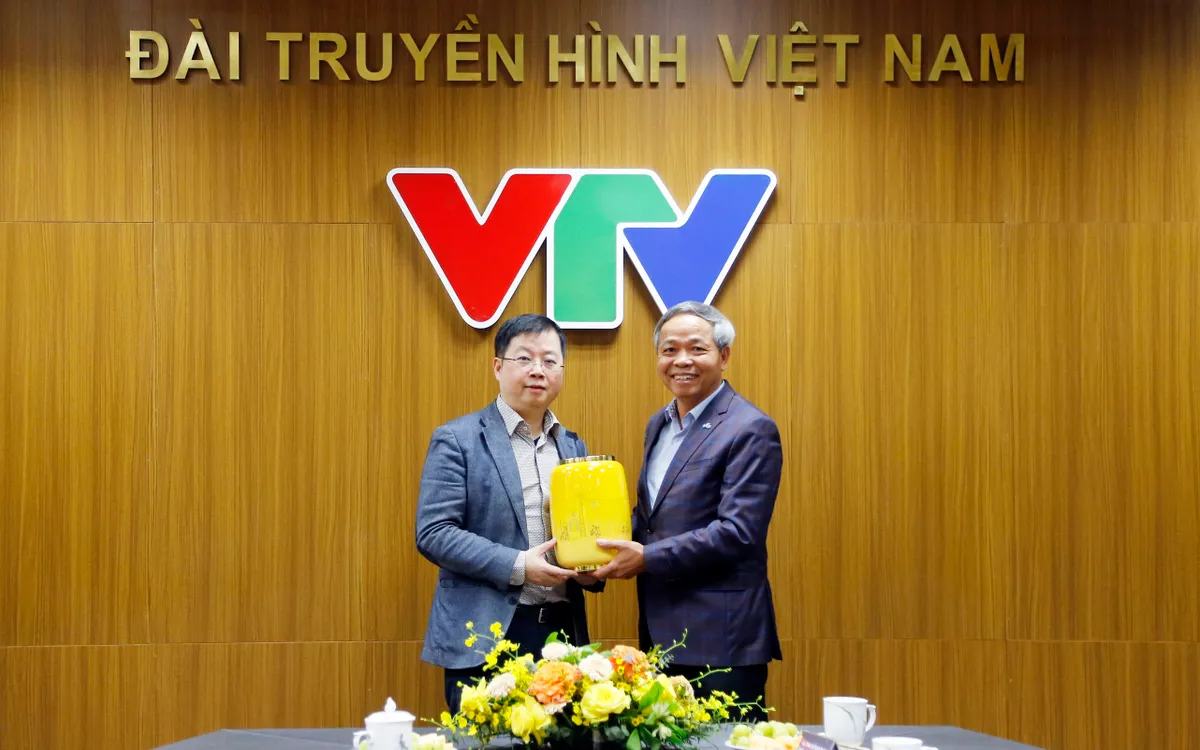

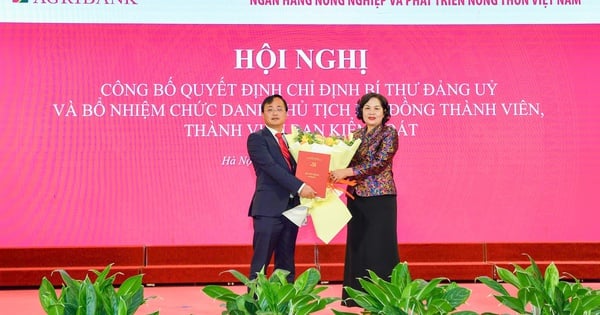


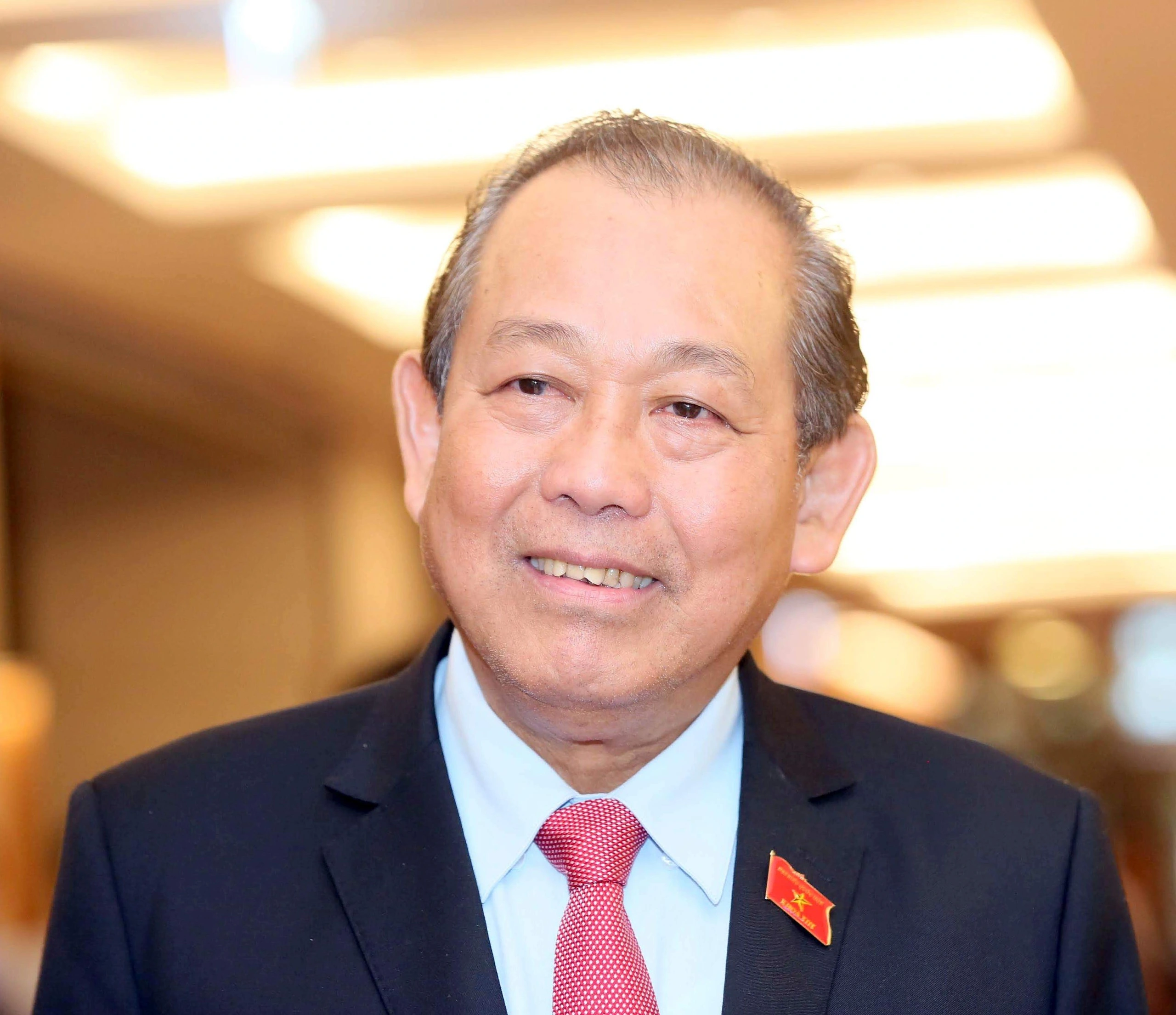

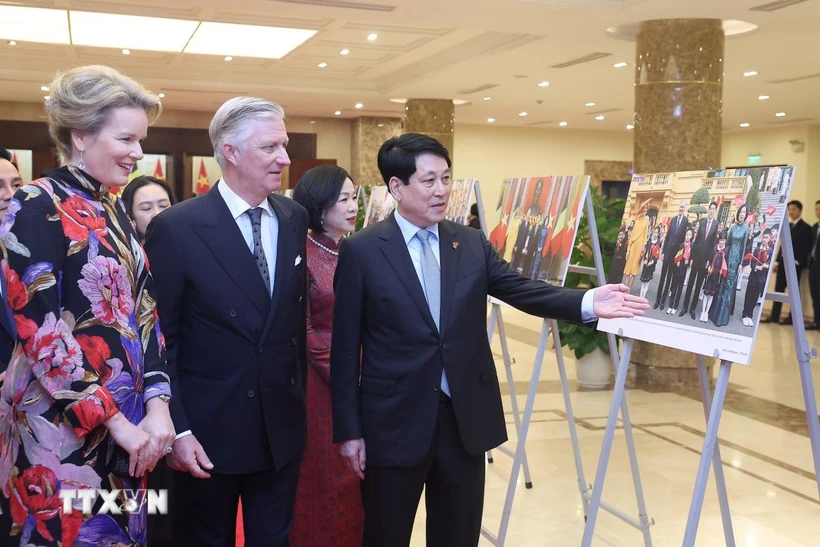

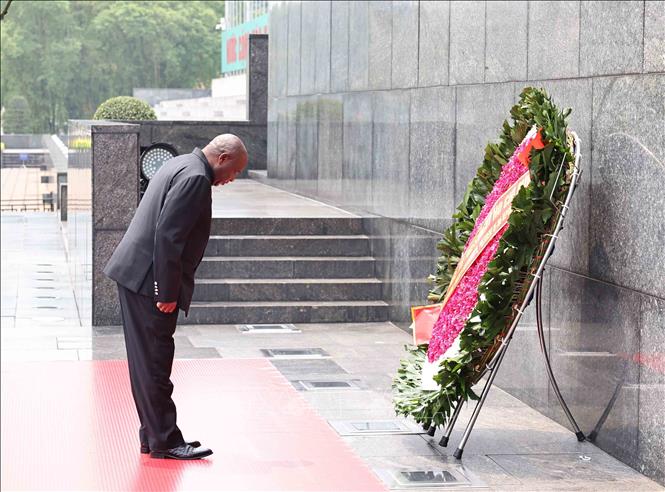


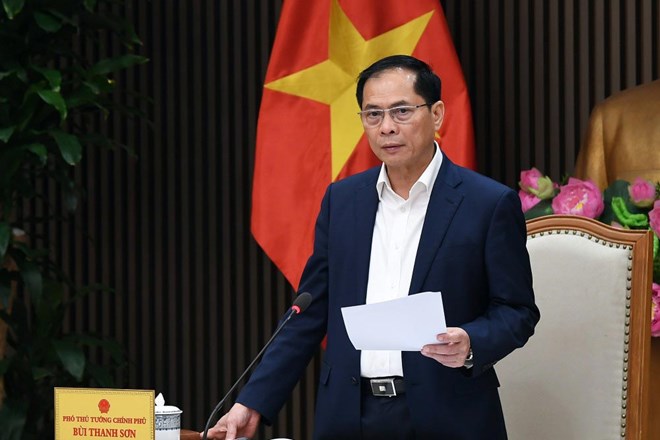





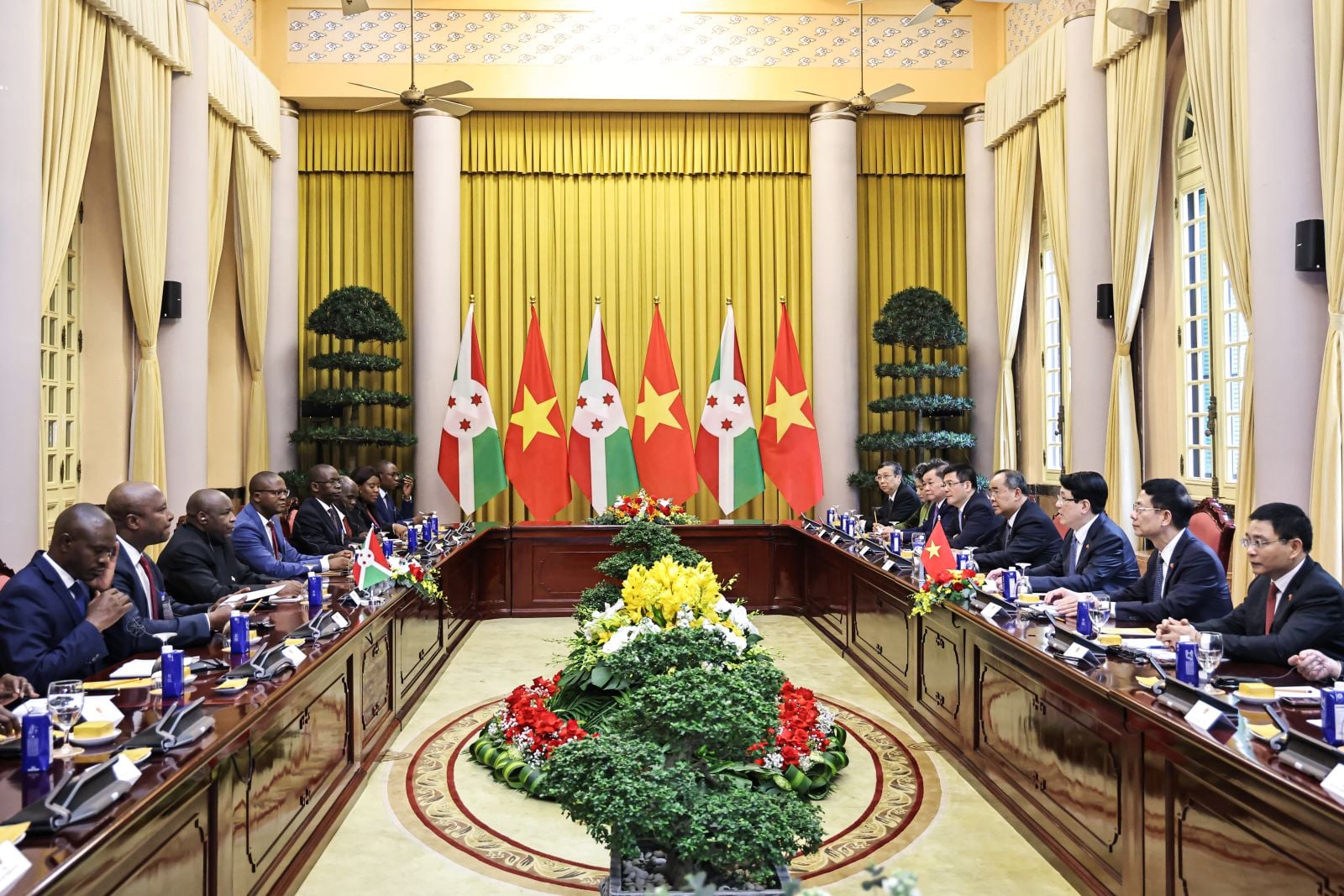

















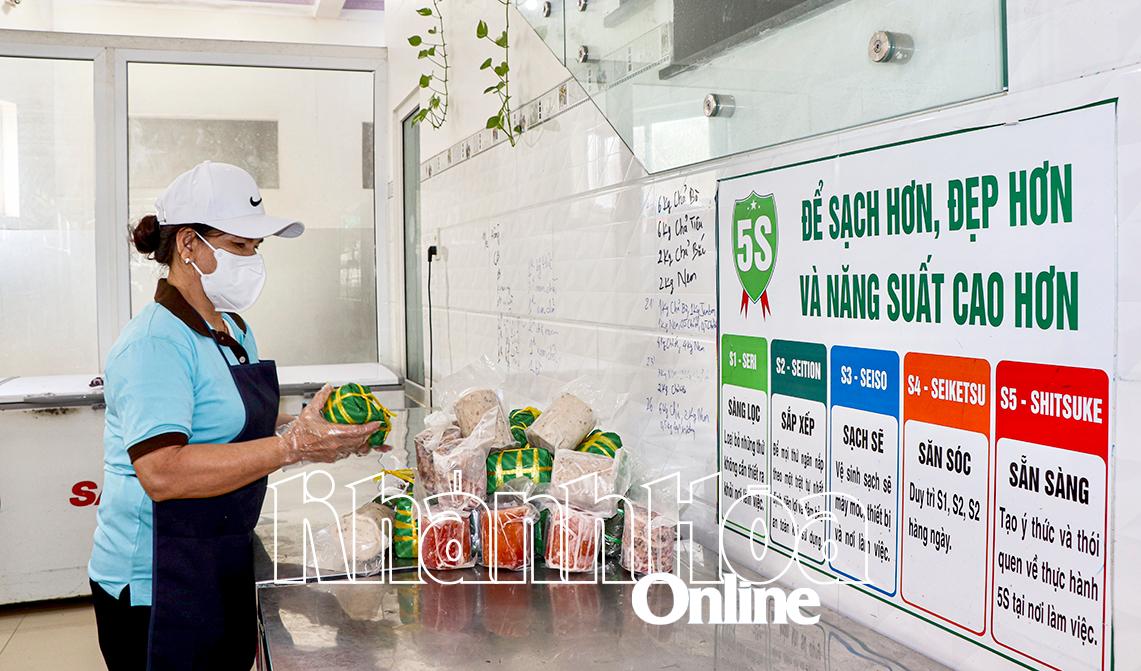





Comment (0)